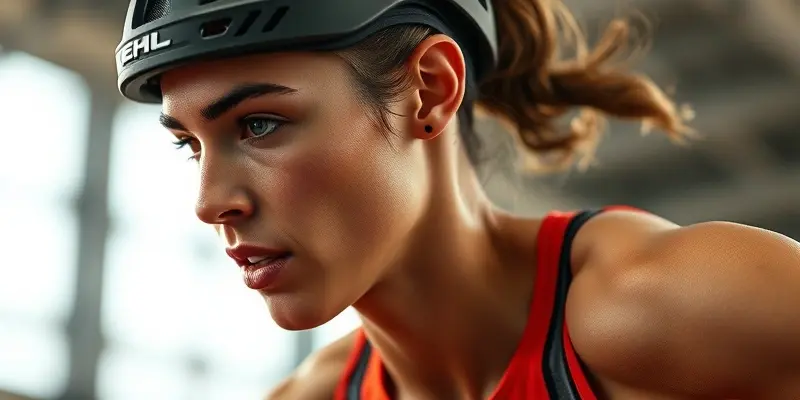How to Recover Like a Pro: Injury Advice Inspired by Magdalena Neuner
Injuries are a tough reality for anyone leading an active lifestyle. Whether you’re a weekend runner, a dedicated gym-goer, or training at a competitive level, setbacks can feel discouraging—or even career-ending. But what if you could turn your recovery into a powerful comeback? Magdalena Neuner, Olympic biathlon champion, did just that. Her approach provides practical insight for anyone seeking faster recovery and lasting injury prevention. Here’s how you can apply these pro principles to your own journey.
The Science—and Mindset—of Effective Recovery
Listen to Your Body, Not Your Ego
Neuner’s comeback began with one essential principle: rest is part of the plan, not a step backward. After both illness and a back injury kept her off the start line, she prioritized structured rest and gradual rehabilitation. Research backs her up—tissues repair best under the right balance of activity and recovery. Ignoring pain or pushing too soon often leads to reinjury.
The Psychology Behind Bouncing Back
Physical healing is just one side of recovery. Neuner’s patient approach—celebrating incremental progress, not just the end result—helped her rebuild both confidence and motivation. Whether you’re nursing a sprain or rehabbing after surgery, set small, achievable goals and recognize every win along the way. Visualization, journaling, or seeking support from coaches and friends can make all the difference in your mindset. For more detailed techniques on mental recovery, check out our post on visualization for healing.
Practical Strategies for Faster, Safer Recovery
What sets professional athletes apart isn’t just talent—it’s a smart, systematic approach to recovery. Here’s how you can apply those strategies:
1. Smart Training Adjustments
- Embrace progressive overload, but respect your limits. After injury, reintroduce intensity and volume gradually.
- Consider working with a coach or physiotherapist to tailor your workouts during rehab.
2. Nutrition for Healing
- Focus on lean proteins (think chicken, fish, or beans) to support muscle repair.
- Load up on antioxidant-rich fruits and veggies to fight inflammation. Learn more about antioxidants in sports nutrition in our article on antioxidants in sports nutrition.
- Hydrate and replenish lost electrolytes, especially after intense sessions.
3. Tools and Technology
- Use foam rollers or massage guns to relieve muscle tension.
- Wear compression garments to improve circulation and reduce swelling.
- Track your recovery with a wearable device—monitor resting heart rate, sleep, and fatigue signals.
4. The Mental Game
- Set realistic, specific goals for each phase of recovery.
- Practice mindfulness or meditation to manage anxiety and frustration.
- Stay connected with your support network—teammates, coaches, and even online communities.
Preventing Injuries Before They Happen
The easiest injury to treat is the one you never get. Follow these guidelines to strengthen your defenses:
Warm-ups and Mobility
- Invest 5–10 minutes before every workout in dynamic stretching and mobility drills.
- Don’t neglect the cool-down—gentle stretching aids in recovery.
Programming and Recovery
- Mix high- and low-intensity days. Quality sleep and a regular routine help your body adapt and stay resilient.
- Swap “no pain, no gain” for “train smarter, not just harder.”
Know When to Seek Help
- If pain persists, don’t hesitate to consult a healthcare pro. Early intervention leads to faster healing and a safer return to exercise.
Key Lessons: Turn Setbacks Into Strength
Magdalena Neuner’s recovery story isn’t reserved for elite athletes—it’s a blueprint for anyone who values health, performance, and longevity. Remember:
- Rest and gradual progress are signs of strength, not weakness.
- Nutrition and smart tools speed the body’s natural healing.
- Mindset and support are just as critical as physical therapy.
- Prevention requires habits, not luck.
No matter your fitness level, approach injury with patience, knowledge, and self-compassion—you’ll come back not just stronger, but wiser. Ready to make your next comeback your best? Start today.
Author: GymPulse Training Team (Experience in sports performance, wellness, and recovery coaching)
References available upon request; For further guidance, consult your personal trainer or sports health professional.

